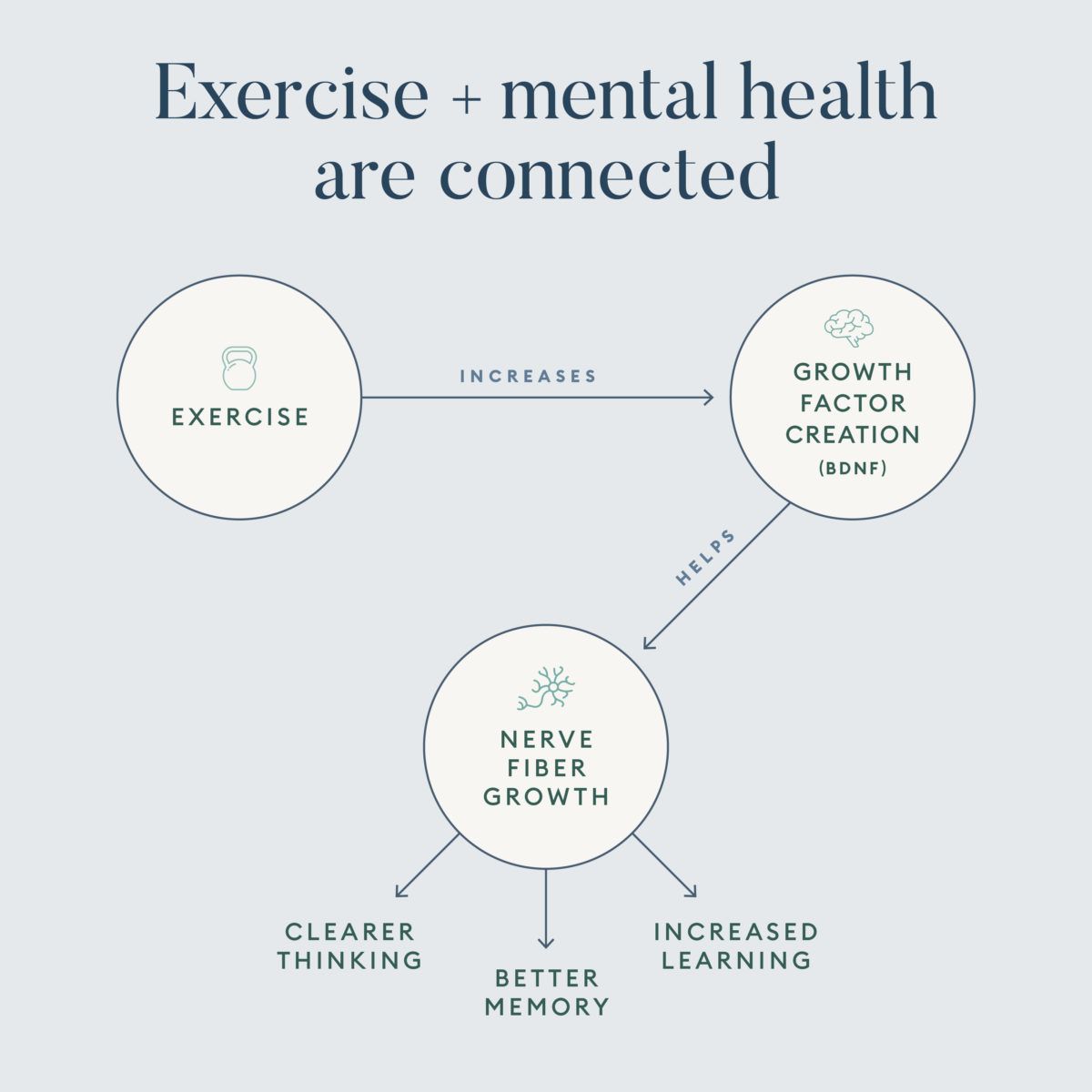The link between exercise and mental health has long been established, and as research uncovers more about this relationship, we’re finding that there are certain ways workout habits can be adjusted to optimize our mental wellbeing. Here are five ways to make sure your mind gets the most out of your workouts.
The mind-body connection is a hot topic in today’s health climate. Scientific research has made it clear that mental health can have an impact on various areas of physical health—from your gut microbiome to your weight and even inflammation levels. And the exercise and mental health connection goes both ways: We can positively impact our mental health by improving our diet, for example.
Another proven strategy: “We know that movement is effective for improving mental health,” says Caroline Hoeffgen, a health coach at Parsley Health. “That’s been established over and over again.” There’s a plethora of research showing that exercise can help people with clinical depression and anxiety, for example.

And observational data shows people who are active are generally happier. For instance, a large-scale epidemiological study published in the Lancet in 2018 looked at over 1.2 million Americans, their exercise habits, and their mental health. The findings were clear: those who exercised regularly experienced fewer days per month of poor mental health.
As for exactly how exercise and mental health are connected, there are quite a few mechanisms on the table—some theoretical, and some proven. For instance, most people know about the mood-boosting endorphins that are released during exercise.
We also know that exercise increases blood circulation to the brain and increases the production of brain-derived neurotrophic factor (BDNF), Hoeffgen explains. Research has shown this happening in both mice and humans. “Increased BDNF helps more nerve fibers grow, which helps with better thinking, memory, and learning—which can all provide relief for mental illness.” This is also one of the reasons exercise is thought to help stave off age-related brain degeneration, such as Alzheimer’s and dementia.
Another link between exercise and mental health? Exercise increases self-efficacy, or the trust we have in ourselves that we can handle difficult situations and actually show up, Hoeffgen says. That in itself may be enough to improve mental wellbeing in people with and without a specific mental health disorder.
But regardless of the exact mechanism, it’s undeniable that exercise can make a big positive impact on mindset and mood. Here’s what you need to know to optimize your routine for the biggest lift.

